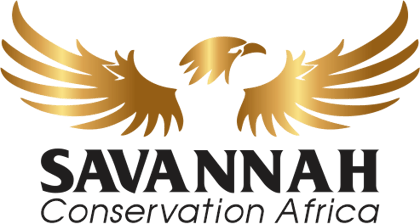


Regulation & Compliance
Regulation and Compliance Framework for Savannah Conservation Africa
1. Introduction
Savannah Conservation Africa (SCA) is committed to upholding the highest standards of regulatory compliance and governance to ensure that its conservation efforts are ethical, legally sound, and environmentally sustainable. A robust regulatory and compliance framework is essential for achieving the organization’s mission while maintaining transparency, accountability, and alignment with national and international conservation laws.
2. Legal and Policy Compliance
SCA operates in strict adherence to national and international environmental laws, conservation policies, and regulatory frameworks. The organization ensures compliance with:
National Environmental and Wildlife Laws – Abiding by country-specific wildlife protection acts, land-use regulations, and environmental impact assessment (EIA) requirements.
International Conservation Agreements – Aligning with treaties such as the Convention on Biological Diversity (CBD), Convention on International Trade in Endangered Species of Wild Fauna and Flora (CITES), and Ramsar Convention on Wetlands.
Human Rights and Indigenous Rights Protocols – Ensuring that conservation efforts respect the rights of indigenous communities and comply with frameworks such as the United Nations Declaration on the Rights of Indigenous Peoples (UNDRIP).
3. Ethical Governance and Accountability
SCA maintains a governance structure that ensures ethical leadership, oversight, and decision-making:
Board of Trustees and Compliance Committee – A dedicated compliance unit oversees adherence to regulations, financial accountability, and ethical governance.
Transparent Reporting Mechanisms – Regular audits, impact assessments, and public disclosure of financial and environmental reports ensure accountability to stakeholders.
Zero Tolerance for Corruption and Illegal Activities – Strict policies against bribery, financial mismanagement, and illicit wildlife trade reinforce ethical conduct.
4. Environmental Impact and Sustainability Standards
All SCA projects undergo rigorous environmental assessments to mitigate ecological harm and ensure sustainability:
Environmental Impact Assessments (EIA) – Conducted before implementing any conservation or commercial activity to assess risks and implement mitigation measures.
Sustainable Resource Management – Adopting eco-friendly practices in land use, waste management, and biodiversity conservation to minimize environmental footprints.
Climate Adaptation and Carbon Offset Measures – Ensuring that conservation projects contribute to carbon sequestration, habitat restoration, and climate resilience.
5. Wildlife Protection and Anti-Poaching Regulations
SCA enforces strict anti-poaching measures and wildlife protection policies:
Strict Anti-Poaching Laws – Collaboration with law enforcement agencies to prevent illegal hunting, trafficking, and habitat destruction.
Wildlife Monitoring and Reporting Systems – Use of satellite tracking, drones, and ranger patrols to monitor wildlife populations and detect threats.
Severe Penalties for Wildlife Crimes – Legal consequences for individuals or organizations found engaging in illegal wildlife trade or habitat destruction.
6. Community and Stakeholder Engagement Regulations
SCA recognizes the importance of involving local communities and stakeholders in conservation efforts:
Community-Based Conservation Agreements – Legal frameworks that define community rights, responsibilities, and benefit-sharing models.
Ethical Ecotourism and Business Partnerships – Ensuring that tourism and business activities comply with conservation principles and local development priorities.
Grievance Redress Mechanisms – Establishing accessible complaint resolution channels for communities affected by conservation initiatives.
7. Compliance Monitoring and Enforcement
To ensure adherence to regulations, SCA implements robust monitoring and enforcement mechanisms:
Internal Compliance Audits – Regular evaluations to ensure all departments operate within legal and ethical guidelines.
Whistleblower Protection Policies – Encouraging transparency by protecting individuals who report non-compliance or unethical practices.
Partnerships with Law Enforcement and Conservation Agencies – Strengthening collaboration with governments, non-profits, and research institutions to enhance compliance and enforcement capabilities.
Conclusion
Savannah Conservation Africa’s regulation and compliance framework is designed to uphold conservation integrity, legal compliance, and environmental sustainability. Through adherence to national and international laws, ethical governance, community engagement, and strict enforcement mechanisms, SCA ensures that its conservation initiatives are both legally sound and environmentally responsible.
